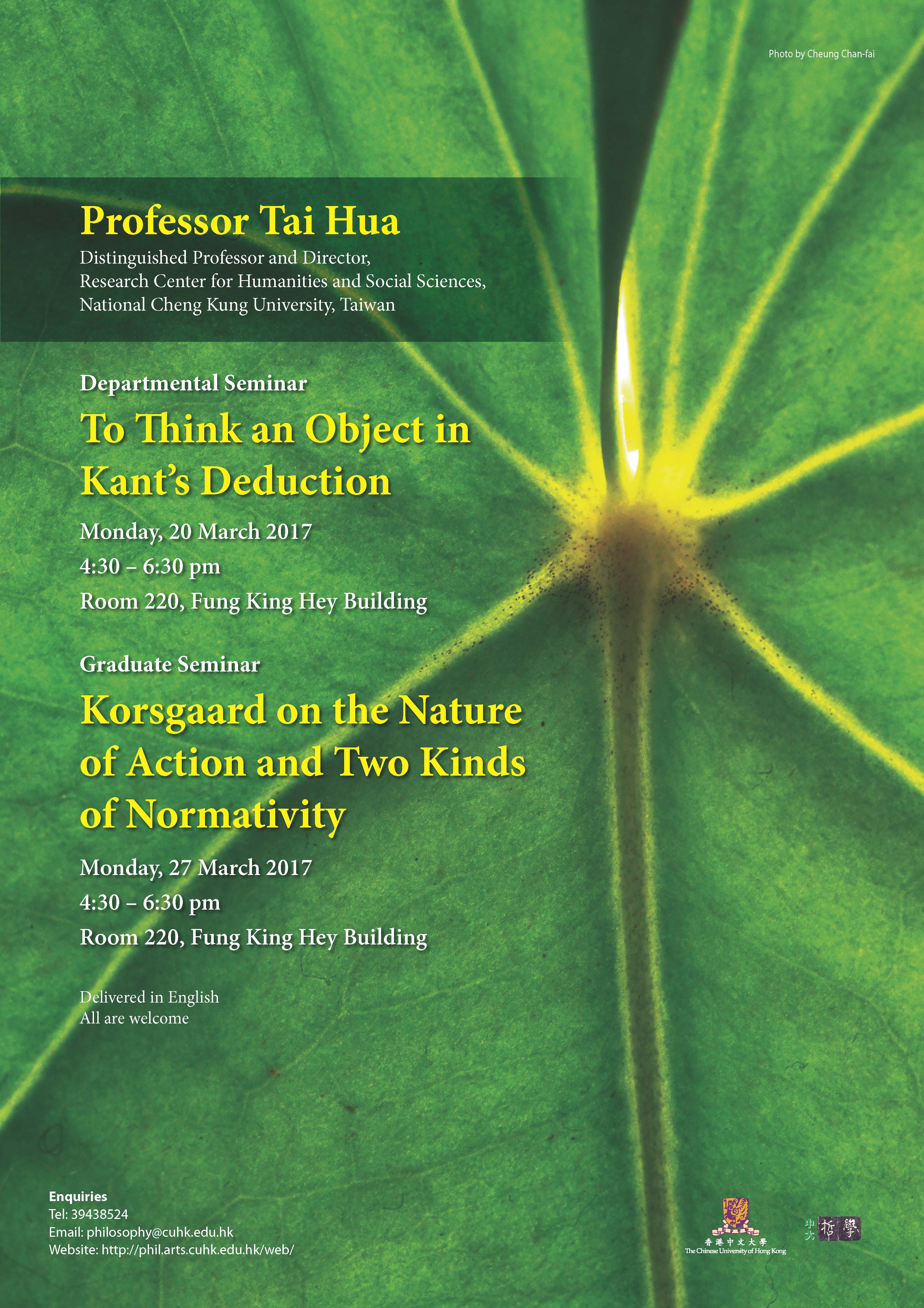To Think an Object in Kant’s Deduction

Prof. Tai Hua, Distinguished Professor and Ex-Director, Research Center for Humanities and Social Sciences, National Cheng Kung University, Taiwan |
|
4:30 – 6:30 pm |
|
Room 220, Fung King Hey Building |
Abstract:
In the Critique of Pure Reason Kant seeks to prove, by means of the Transcendental Deduction of the Categories, the possibility of our cognizing objects a priori. He takes himself to have proved not only this, but also that it is only possible for us to cognize objects discursively, objects that are given as “appearances” through sensible intuition. His rationalist opponents have adopted a non-discursive conception of cognition of an object; according to them, we can cognize objects a priori that are given as “things in themselves” through non-sensible or intellectual intuition. Thus, Kant’s Deduction is supposed to enable him to reject the possibility of transcendent metaphysics as advocated by the rationalists about God and our Cartesian souls as things in themselves.
In the revised (and “enlarged”) version of his book Kant’s Transcendental Idealism, Henry Allison attributes what he calls the “discursivity thesis” to Kant, a thesis that is so formulated by Allison that it already implies that, for a finite mind like ours, “its intuition must be sensible.” It may be questionable whether such a thesis can be, as Allison thinks it can be, identified as Kant’s discursive conception of cognition of an object. This problem aside, Allison thinks that Kant “tends to argue from rather than for the discursivity thesis, thereby suggesting that he viewed it as an unquestioned presupposition or starting point rather than as something that itself stands in need of justification.” If Kant’s Deduction invokes the discursivity thesis as a premise, then he will have already rejected the possibility of transcendent metaphysics right at the start, in which case, however, he will have to argue, as Allison takes Kant to have unfortunately seen no need to argue, for that premise independently of the Deduction so as to avoid begging the question of the rationalists.
I will propose an account of the Deduction according to which it does not start with the discursivity thesis as formulated by Allison, but ends with it. I will also consider the extent to which Kant can rely on the Deduction for refuting the rationalists’ claim to a priori cognition of things in themselves. In doing so, I will take into account Kant’s distinction, overlooked by Allison in connection with the Deduction, between logical and “real” possibilities. Kant has insisted in the B Preface that one be able to prove the real possibility of objects one claims to cognize. I will try to see whether the Deduction can satisfy this requirement as applied to Kant’s own claim to a priori cognition of objects as appearances, and whether it can, on the other hand, be used by him to show that the rationalists can never satisfy the same requirement as applied to their claim to (theoretical) a priori cognition of things in themselves.




